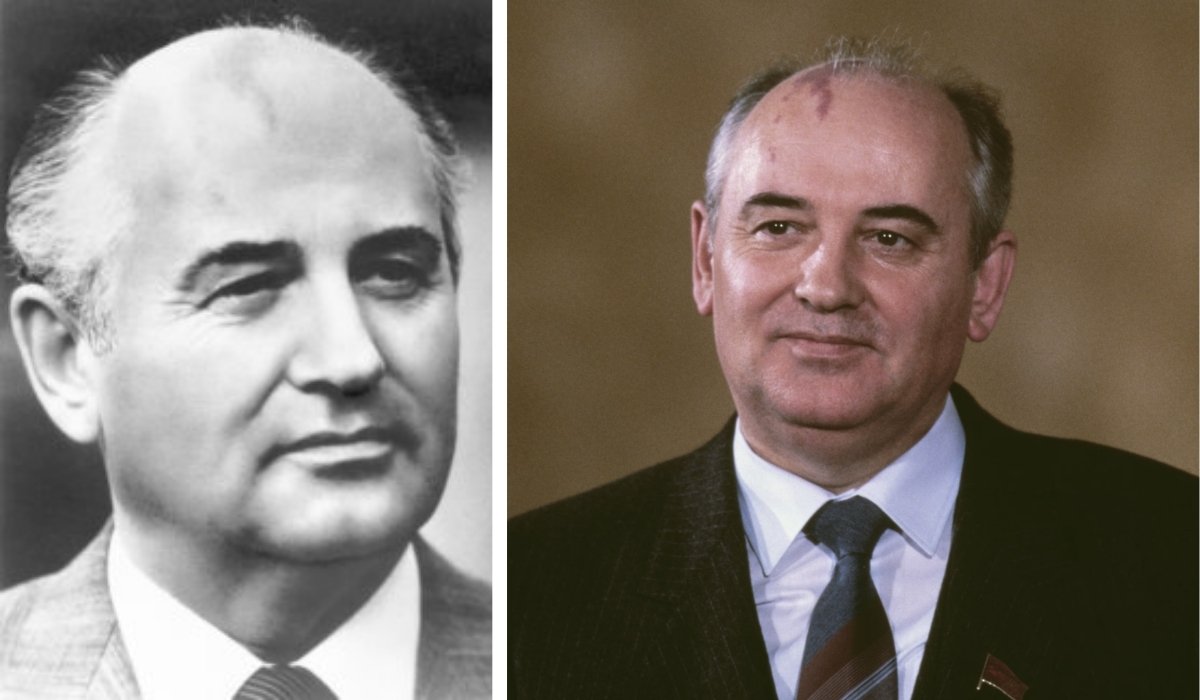Mikhail Gorbachev was a historical figure who left a profound mark on world politics. Known as the last president of the Soviet Union, his leadership style and political reforms transformed the Soviet system and opened the path for a new era in international relations. His name is inseparable from terms like perestroika (restructuring) and glasnost (openness), which reshaped how the Soviet Union functioned domestically and how it interacted with the rest of the world. Gorbachev’s policies not only altered the trajectory of the Soviet Union but also played a vital role in ending the Cold War. Despite controversies and differing opinions about his legacy, Gorbachev’s contribution to global history cannot be denied. This article explores his life, career, legacy, and financial standing in great detail.
Quick Bio
| Full Name | Mikhail Sergeyevich Gorbachev |
| Date of Birth | March 2, 1931 |
| Place of Birth | Privolnoye, Stavropol Krai, Soviet Union |
| Date of Death | August 30, 2022 |
| Occupation | Politician, Former Soviet President |
| Famous For | Last leader of the Soviet Union, policies of perestroika and glasnost |
| Nationality | Russian |
| Net Worth (Approx.) | $5 Million at the time of death |
Early Life and Education
Mikhail Gorbachev was born into a peasant family in Privolnoye, a rural village in Stavropol Krai, in 1931. His early life was shaped by the hardships of agricultural work and the struggles of World War II, which devastated the Soviet Union. As a young boy, Gorbachev worked alongside his parents in collective farms. Despite the tough environment, he showed strong academic potential. His talent for leadership and intellect paved the way for his admission to Moscow State University, one of the most prestigious institutions in the Soviet Union, where he studied law. During his time at the university, he became involved in political activities and joined the Communist Party, which marked the beginning of his lifelong political journey.
Rise in the Communist Party

After completing his education, Gorbachev began working in the agricultural sector in Stavropol, which allowed him to gain hands-on experience in both administration and politics. He was recognized for his ability to connect with ordinary people and manage large-scale agricultural operations effectively. His hard work and organizational skills caught the attention of senior officials, propelling him into higher positions within the Communist Party. By the 1970s, Gorbachev had become a member of the Central Committee, placing him among the rising stars of Soviet politics. His reputation as a reform-minded leader set him apart from his peers, who largely adhered to rigid and conservative approaches.
Becoming the Leader of the Soviet Union
In 1985, following the death of Konstantin Chernenko, Gorbachev was appointed as the General Secretary of the Communist Party, effectively becoming the most powerful leader in the Soviet Union. At just 54 years old, he was relatively young compared to his predecessors, which gave him a different perspective on governance. Gorbachev recognized that the Soviet Union was facing deep economic and social crises, with declining productivity, corruption, and lack of innovation plaguing the system. His leadership was driven by a vision to modernize the country, improve living standards, and restore credibility to the Soviet government.
Policies of Perestroika and Glasnost

Two of Gorbachev’s most well-known contributions were the policies of perestroika and glasnost. Perestroika, meaning restructuring, was aimed at reforming the stagnant Soviet economy by introducing elements of market economics, decentralizing decision-making, and encouraging private enterprise. On the other hand, glasnost, meaning openness, sought to increase transparency, freedom of expression, and access to information. These reforms allowed Soviet citizens to voice their opinions more freely and gave rise to public debate about government policies, corruption, and historical injustices. Although revolutionary in nature, these policies also destabilized the rigid Soviet system, sparking both support and opposition from different segments of society.
Role in Ending the Cold War
Mikhail Gorbachev’s leadership extended far beyond domestic reforms. He was a central figure in reshaping international relations during the 1980s. His willingness to engage with Western leaders such as U.S. President Ronald Reagan and British Prime Minister Margaret Thatcher marked a turning point in the Cold War. Gorbachev worked toward reducing nuclear arsenals, improving diplomatic ties, and easing tensions between the East and the West. The signing of the Intermediate-Range Nuclear Forces (INF) Treaty in 1987 was a historic step toward arms reduction. His cooperative approach earned him global recognition and even the Nobel Peace Prize in 1990, highlighting his role as a peacemaker on the world stage.
The Fall of the Soviet Union

Despite his efforts to save the Soviet Union through reforms, the internal contradictions of the system ultimately led to its collapse. Economic challenges, rising nationalism in different republics, and political unrest created a wave of instability that Gorbachev struggled to control. By 1991, several Soviet republics declared independence, and a failed coup attempt by hardline communists further weakened his position. In December 1991, Gorbachev resigned as President of the Soviet Union, officially marking the end of the USSR. This moment was both historic and tragic, as it ended nearly seven decades of Soviet rule.
Later Life and Public Image
After stepping down from power, Gorbachev remained active in public life. He established the Gorbachev Foundation, which focused on promoting democracy, social justice, and environmental sustainability. He also wrote books and gave lectures around the world, sharing his perspectives on politics, leadership, and global issues. Despite his international acclaim, his image in Russia was more complex. Many Russians blamed him for the collapse of the Soviet Union and the subsequent economic turmoil of the 1990s. Nonetheless, his contributions to global peace and openness were widely acknowledged outside Russia, cementing his place in history.
Mikhail Gorbachev’s Net Worth

At the time of his death in 2022, Mikhail Gorbachev’s estimated net worth was around $5 million. Unlike many political leaders who amassed vast fortunes, Gorbachev’s wealth was relatively modest. Much of his income came from writing books, delivering paid speeches, and running his foundation. His net worth reflected a life dedicated more to public service and intellectual pursuits than personal enrichment. His financial standing also symbolized the contrast between his legacy and the vast wealth accumulated by some of his successors in Russian politics.
Legacy of Mikhail Gorbachev
Mikhail Gorbachev’s legacy is one of complexity and debate. For many in the West, he is remembered as a visionary leader who ended the Cold War, reduced nuclear tensions, and promoted freedom of speech. In Russia, however, opinions remain divided, with some seeing him as the man who inadvertently dismantled a superpower. Regardless of perspective, his influence on global politics, reform, and the fight for transparency remains undeniable. His name is permanently linked to one of the most transformative periods in modern history, making him a figure whose impact will be studied for generations.
Conclusion
Mikhail Gorbachev’s life story is one of resilience, vision, and change. From his humble beginnings in a peasant village to becoming the leader of the world’s second superpower, his journey exemplifies the power of leadership in shaping history. While not all of his reforms achieved the results he envisioned, his efforts to open up the Soviet Union and promote global peace left an indelible mark. Gorbachev’s contributions remind us that leadership is not only about power but also about responsibility, vision, and the willingness to challenge outdated systems for the sake of progress.
Frequently Asked Questions
1. What is Mikhail Gorbachev best known for?
- Mikhail Gorbachev is best known for being the last leader of the Soviet Union and for introducing the policies of perestroika (restructuring) and glasnost (openness), which transformed Soviet politics and society.
2. How did Mikhail Gorbachev contribute to ending the Cold War?
- He improved relations with Western leaders, signed arms reduction treaties, and adopted a cooperative approach to international diplomacy, which helped ease tensions between the East and the West.
3. What was Mikhail Gorbachev’s net worth?
- At the time of his death in 2022, Mikhail Gorbachev’s net worth was estimated to be around $5 million.
4. Why did the Soviet Union collapse under Gorbachev’s leadership?
- The collapse was driven by deep economic crises, rising nationalism in Soviet republics, and political instability, which overwhelmed Gorbachev’s reform efforts.
5. Did Mikhail Gorbachev win any awards for his work?
- Yes, he received several awards, including the Nobel Peace Prize in 1990, for his role in promoting peace and ending the Cold War.








